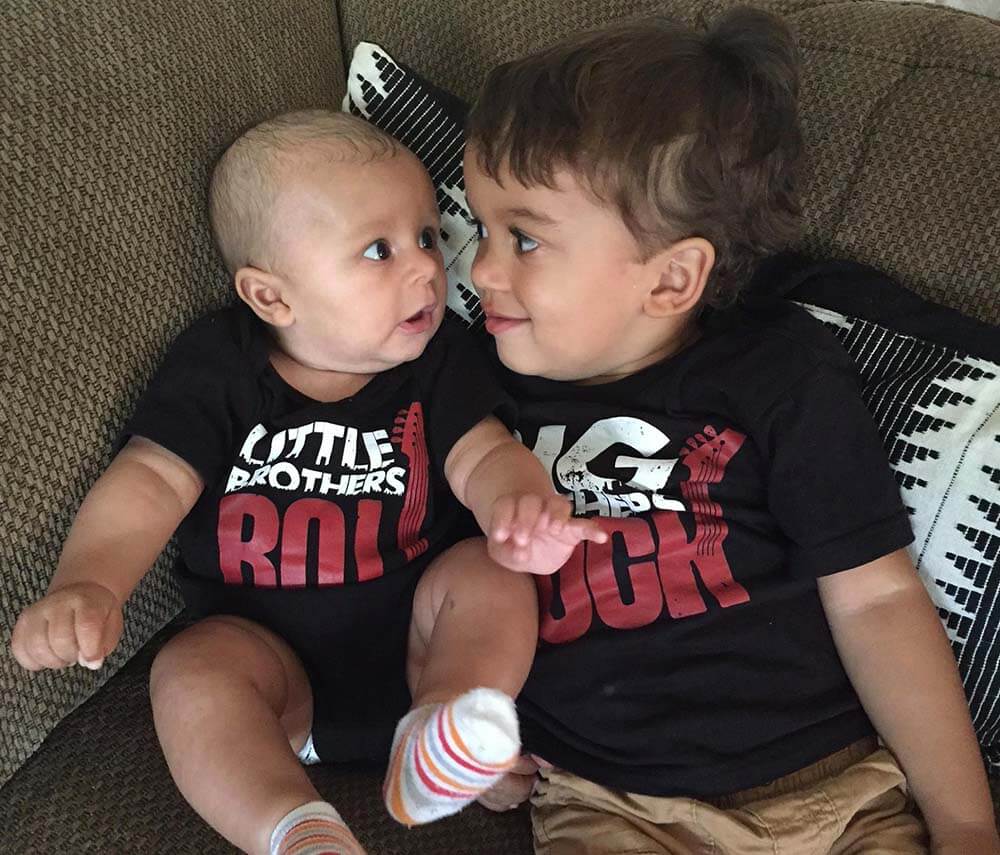Caring for an infant and a toddler or preschooler can be exhausting! It gets easier with time, but the first few months after a baby’s birth are especially challenging. The following are some tips which may help.
Seek Help
- Once a new baby is born, a sibling suddenly seems much older. Remember a toddler is still a baby and even a preschooler still needs a lot of time and attention. Be gentle with yourself and accept any outside support you can.
- Consider hiring a helper a few times a week to play with an older sibling and give you a bit of a break. This could be a neighborhood teenager or friend of the family. Ask around. If you need more extensive support, consider hiring a postpartum doula.
Gather Special Toys
- Nursing sessions are a great time for special toys (played with only during nursing). Audio books, one handed games, reading books, listening to music, singing, drawing pictures, tea parties, cuddling, or anything that can be done one handed are a few ideas. Games like “I Spy” and “Simon Says” can be popular. This is also a great time to tell an older sibling stories about when they were a baby. Some parents even designate a toddler-safe, gated-off room with toys only to be used during breastfeeding sessions.
Small Activities
- A specific time of focused attention each day (even just 10 minutes) can help make up for times you can’t give a sibling your full attention and provides something to look forward to. Ask your partner or another helper to care for your baby and do your best to forget the sink of dirty dishes or the floor that needs to be swept! Try to make lots of eye contact and let your child choose the activity.
- Small jobs can help an older sibling feel important. Try having the sibling throw trash away, hand you diapers or spit cloths, put the baby’s socks on, bring you a water bottle during nursing, help fold the towels when doing laundry, or hand you clean dishes to put away.
- Teach your toddler/preschooler how to interact and play with the new baby. Do tummy time together, play tongue games or make faces, teach gentle touching, and watch the baby’s reactions. Make an effort to reward your older child whenever they are helpful or have a positive interaction with your infant. Point out the way your infant watches or interacts with their sibling. Encourage your child to see your infant as a real person with feelings.
Baby Wearing for the Win
- Babywearing can be a lifesaver for parents of multiple children. A local babywearing group may have a lending library and allow you to try different carriers.
Asking to Nurse:
- Sometimes an already weaned sibling will ask to nurse after a new baby arrives. This is normal curiosity and very common. Often if you let the sibling attempt to nurse a time or two, it will satisfy the curiosity. Breastfeeding is a skill quickly lost in older children, so even if a sibling was recently breastfeeding, it is unlikely he or she will remember how to latch and suck.
Language is important
- Try not to blame the baby for inconveniences related to them. Instead of, “I can’t help right now, I’m changing the baby’s diaper,” try, “I’m busy now. I will help you very soon.” Instead of “Be quiet, so you don’t wake the baby,” try, “It’s quiet time now.”
- Try talking to your infant in ways that make their sibling feel loved. Your infant won’t understand, but their sibling will! If your baby must wait a minute or two to breastfeed while you help an older sibling, verbally point this out to the baby. It can help to know other people in the house need to wait sometimes too. If the sibling displays positive behavior, talk to your baby about what a great helper they are.
- Remind the older sibling of things they gets to do that the infant cannot. Playing at the park, eating ice cream, using the potty, reading books, etc. Being the baby might seem a little less appealing!
- Help an older sibling put words to their feelings. Use simple sentences to reflect what they may be feeling. “It is so hard to be patient when mommy is nursing the baby because you want help right now” or, “Waiting to go to the park must make you feel very angry.” Hold your child and provide a safe, comforting space to cry when needed. If a child’s feelings are validated, they are less likely to act on them in inappropriate ways.
Having a new baby is a huge adjustment for the entire family and behavior challenges in siblings are very normal. Most can be improved with a little extra time and attention. They also can give great insight into the needs of your child. Fortunately, you know your child better than anyone! Follow your instincts and don’t be afraid to ask for help. Overall, remember that it is going to get easier!



